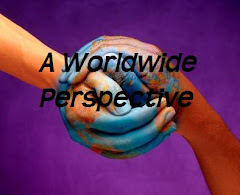Every so often, I will post about a specific refugee crisis around the world. These "World Focus" posts will cover the history of conflict, current refugee situations, and how the US is contributing to the conflict, either positively or negatively. While I will cover some of the more well-known conflicts, I do hope to raise awareness about situations that most Americans aren't as knowledgeable on. For my first World Focus, let's shift our attention to the Middle East...
While it would take me much more then a short blog post to explain the history of the Israeli-Palestinian conflict, I do feel that this is something that Americans MUST become educated on. Palestinian refugees are unique since the term covers not just Palestinians that were originally from the British Mandate of Palestine but then were forced to relocate as a result of the 1948 Arab-Israeli war and the creation of the state of Israel, but also their descendants. According to UN information about the conflict, there are over 4.25 million Palestinian refugees who have been forced to relocate and are currently living mostly in the Gaza Strip, West Bank, Jordan, Lebanon, and Syria. These numbers don't even include the rest of the Palestinians who have always lived in Gaza and the West Bank and are living in refugee-like situations due to the Israeli occupation. The reason that there are so many refugees is because of Israel's official stance on displaced Palestinians - they feel that a solution to the problem must include relocation to other states, and they refuse to allow Palestinian refugees to return to their homeland within the state of Israel, even though many have illegally tried to return. Because of this, the surrounding countries have become homes to HUGE refugee camps - Jordan is housing 1.8 million refugees, and both Syria and Lebanon have over 400,000 refugees. Even if they were able to return though, they would find nothing the same. Israel has confiscated all of the property of refugees who have fled, and continues to practice removing Palestinians from their homes only to bulldoze the land and then build homes for Israeli citizens there.
One of the main issues that is perpetuating the Israeli-Palestinian conflict is disputes over Palestinian refugee's "Right of Return." The United Nations has always supported the belief that a displaced person should be allowed to return to their home country, or if they choose not to, be compensated for their lost land and property. The most commonly quoted source of this belief is the UN General Assembly Resolution 194, passed right after the end of the Arab-Israeli War in 1948. The Resolution calls for protection and free access to the holy places in Israel and the demilitarization and UN Control of Jerusalem, among other things, but most notably is Article 11, which calls for the return of Palestinian refugees.
"Resolves that the refugees wishing to return to their homes and live at peace with their neighbours should be permitted to do so at the earliest practicable date, and that compensation should be paid for the property of those choosing not to return and for loss of or damage to property which, under principles of international law or in equity, should be made good by the Governments or authorities responsible. "
Israel refuses to do this. They are in direct violation of this and many other UN Resolutions, and yet the United States still gives Israel more aid then any other country. In fact, over 1/3 of the
US's foreign aid budget goes to Israel. Even though all recent US administrations have
dissaproved of Israel's settling of Palestinian property, they still increase the aid given to Israel every year, with less and less oversight. Should our government be giving unprecedented amounts of money to a country that goes against UN resolutions and is systematically removing a population from their country? I am not in any way trying to be anti-Jewish or anti-Semitic or claiming that the violence on the part of the Palestinians is acceptable, since I feel that violence in any way, shape, or form only hinders the peace process, but I do think that we, as the American people, need to start asking our government why they are giving so much money to a country that is responsible for one of the largest humanitarian and refugee crisis in the world.
Interested in learning more? Check out these websites...
http://www.un.org/unrwa/http://electronicintifada.net/new.shtmlhttp://www.mideastweb.org/refugees1.htm
